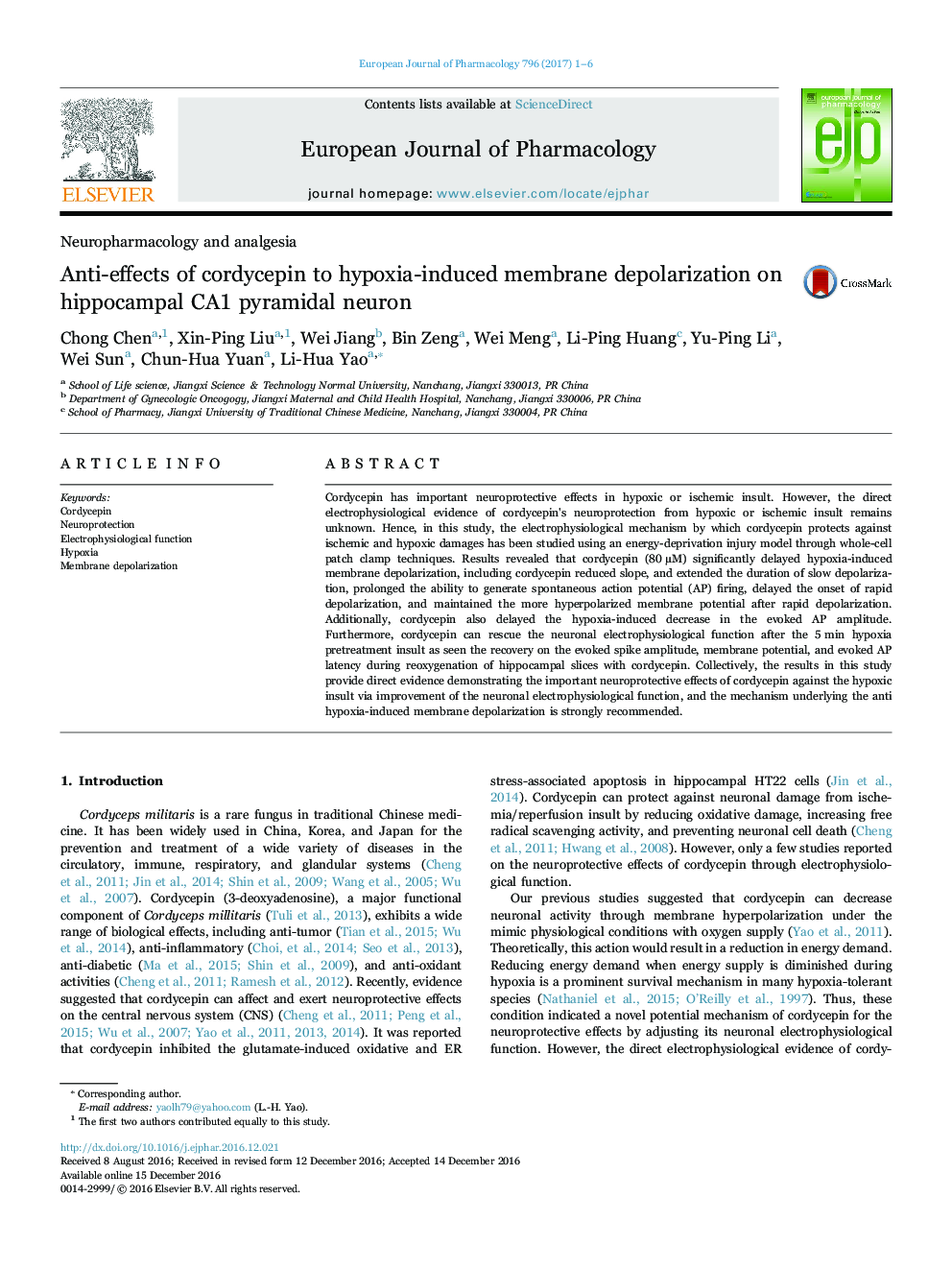| Article ID | Journal | Published Year | Pages | File Type |
|---|---|---|---|---|
| 5554871 | European Journal of Pharmacology | 2017 | 6 Pages |
Cordycepin has important neuroprotective effects in hypoxic or ischemic insult. However, the direct electrophysiological evidence of cordycepin's neuroprotection from hypoxic or ischemic insult remains unknown. Hence, in this study, the electrophysiological mechanism by which cordycepin protects against ischemic and hypoxic damages has been studied using an energy-deprivation injury model through whole-cell patch clamp techniques. Results revealed that cordycepin (80 µM) significantly delayed hypoxia-induced membrane depolarization, including cordycepin reduced slope, and extended the duration of slow depolarization, prolonged the ability to generate spontaneous action potential (AP) firing, delayed the onset of rapid depolarization, and maintained the more hyperpolarized membrane potential after rapid depolarization. Additionally, cordycepin also delayed the hypoxia-induced decrease in the evoked AP amplitude. Furthermore, cordycepin can rescue the neuronal electrophysiological function after the 5 min hypoxia pretreatment insult as seen the recovery on the evoked spike amplitude, membrane potential, and evoked AP latency during reoxygenation of hippocampal slices with cordycepin. Collectively, the results in this study provide direct evidence demonstrating the important neuroprotective effects of cordycepin against the hypoxic insult via improvement of the neuronal electrophysiological function, and the mechanism underlying the anti hypoxia-induced membrane depolarization is strongly recommended.
